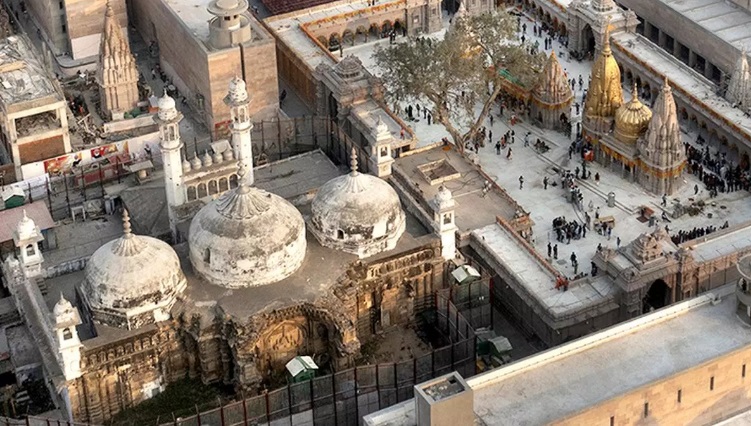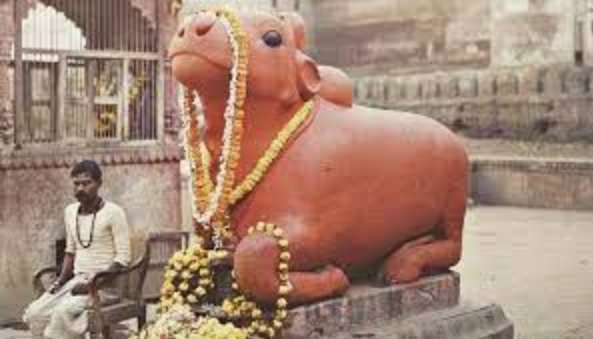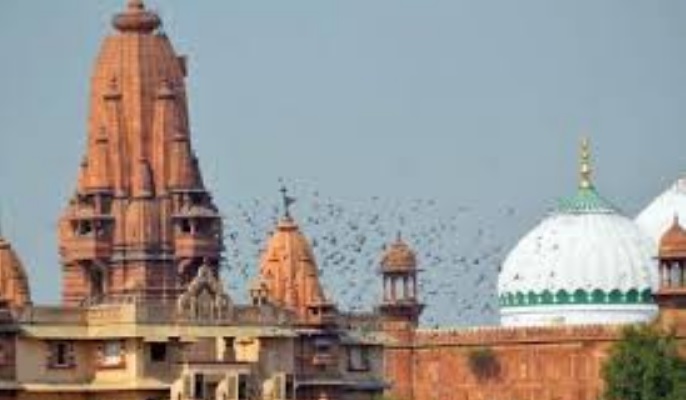
Devotee claims sighting Nandi during Pooja at Gyanvapi mosque complex
Four cellars, known as ‘tehkhanas’, are found in the basement of the Gyanvapi mosque complex.
Following a recent court order affirming the right to perform religious rituals at the historical site, the Varanasi administration implemented the directives of the district court. As a result, on Thursday morning, Pooja was permitted in ‘Vyas Ji ka Tehkhana’ located in the southern part of the Gyanvapi complex.
Around 3 am, a priest performed the Pooja, followed by an aarti.
Before the start of the Pooja, a meeting was held around midnight at a hall within the Kashi Vishwanath Dham premises, chaired by Varanasi’s District Magistrate, S Rajalingam, and Commissioner of Police, Ashok Mutha Jain. The meeting lasted approximately two hours.
After discussions, the district administration took measures to enact the court’s ruling. A passage was cleared within the barricades to facilitate smooth access to the southern cellar, ensuring uninterrupted observance of Pooja rituals. Rajalingam confirmed the removal of barricades and compliance with the court order. Visuals depicted delighted devotees expressing joy while offering prayers at the Gyanvapi mosque complex.
“We witnessed the Nandi bull. Since yesterday, we’ve eagerly awaited to offer prayers. The construction of the temple is crucial. We’re elated after completing our prayers,” expressed a devotee to ANI upon exiting the complex.

Security measures have been enhanced around the Gyanvapi complex.
On Wednesday, the Varanasi district court permitted Hindu worshippers to conduct prayers in one of the cellars located in the basement of the Gyanvapi complex.
The Gyanvapi mosque, constructed in the 17th century by the Mughal Empire, is among several Islamic places of worship that Hindu activists have long endeavored to reclaim for their faith.
Situated in a city where Hindu devotees from all over the country perform cremations along the banks of the Ganges river, the mosque was established during the Mughal Empire’s reign in the 17th century.
The mosque complex contains four ‘tehkhanas’ in the basement, with one claimed by the Vyas family. Shailendra Kumar Pathak Vyas petitioned to resume Pooja as the hereditary pujari, asserting his right to access the tehkhana.
Contrary to these claims, Akhlaque Ahmad, counsel for the Anjuman Itezamia Masajid Committee, denied the assertions, stating, “The Vyas family never conducted Pooja in the basement. There were no idols present in the cellar. It is incorrect to suggest that the Vyas family held possession of the cellar. The basement is under the ownership of the Anjuman Itezamia Masjid Committee.”



